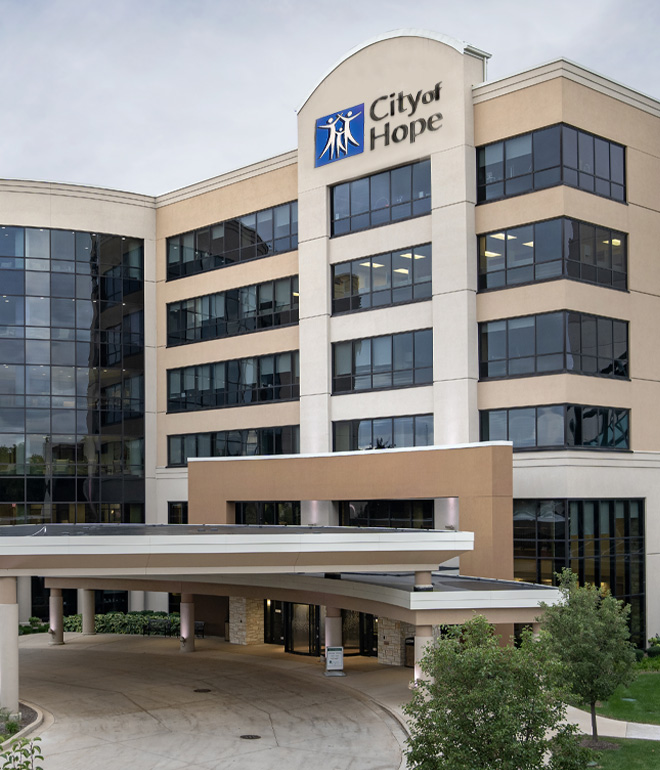

Blood cancers, such as leukemia, multiple myeloma or lymphoma, may damage blood cells in the bone marrow or the lymph system, making it difficult for the body to produce new and healthy cells. As the damaged blood cells divide and grow out of control, they also crowd out healthy cells, damage the immune system and produce a variety of symptoms, such as fatigue, fever and night sweats.
To help patients with blood cancers produce new, normal cells, our doctors at City of Hope may recommend a stem cell transplant as part of their treatment plan. City of Hope®, a National Cancer Institute-designated comprehensive cancer center, has created one of the largest stem cell and bone marrow transplant program in the United States. City of Hope is creating a new model of cancer care focused on delivering advanced treatments to even more patients diagnosed with blood cancers.
The hematologic oncologists, hematologists and other cancer experts at City of Hope work together on a multi-disciplinary team to determine whether a stem cell transplant may be a treatment option for each patient, and if so, offering strategies to prepare for the rigorous procedure and manage potential side effects.
Our singular focus on treating cancer, and only cancer, means we have the expertise to confirm a diagnosis or treatment plan and offer options that may not have been considered.
An supportive approach to treats each patient holistically, treating not just their disease but helping them prevent and manage the side effects, so they can feel better while getting better.
Your care team will help you handle the logistics of treatment, including coordinating your appointments, getting your test results and making sure your questions are answered, so you can focus on healing.
Stem cells are immature cells that are found in blood and bone marrow and develop into different types of cells, including blood cells, nerve cells and muscle cells. A stem cell transplant replaces damaged and cancerous cells with stem cells that divide normally and eventually mature into healthy cells. A stem cell transplant differs from a bone marrow transplant because the cells are collected from blood that circulates in the body and not harvested from bone marrow.
The two main types of stem cell transplants are:
City of Hope Chicago performs both types of transplants using hematopoietic stem cells collected from the blood of adults (either the patient or a donor). City of Hope does not use embryonic stem cells or those from aborted fetuses.
Stem cell transplants may be used to treat patients with blood cancers, which include:
Not all patients are candidates for a stem cell transplant. Patients will be given a series of medical tests to determine whether the treatment is the right option for their specific cancer and whether they’re able to tolerate the side effects of the procedure.
Among the factors considered are:
A stem cell transplant is a multi-week process that requires expert care and closely coordinated side effect management. The procedure and the steps taken before and after may also make patients vulnerable to infection and produce serious side effects.
A serious, potentially life-threatening condition may develop in allogeneic transplant patients called graft vs. host disease (GVHD). It occurs when the donated stem cells attack the body, just like they’d attack a foreign invader. Acute GVHD may be treated with immunosuppressive drugs. Potential side effects of acute GVHD may include:
A mild case of GVHD may be a positive sign indicating the new cells are attacking the underlying disease.
To help our patients stay strong before and after their transplant, a team of supportive care providers is available to help with managing the side effects of treatment and maintaining their quality of life. Supportive care services for stem cell transplant patients may include:
